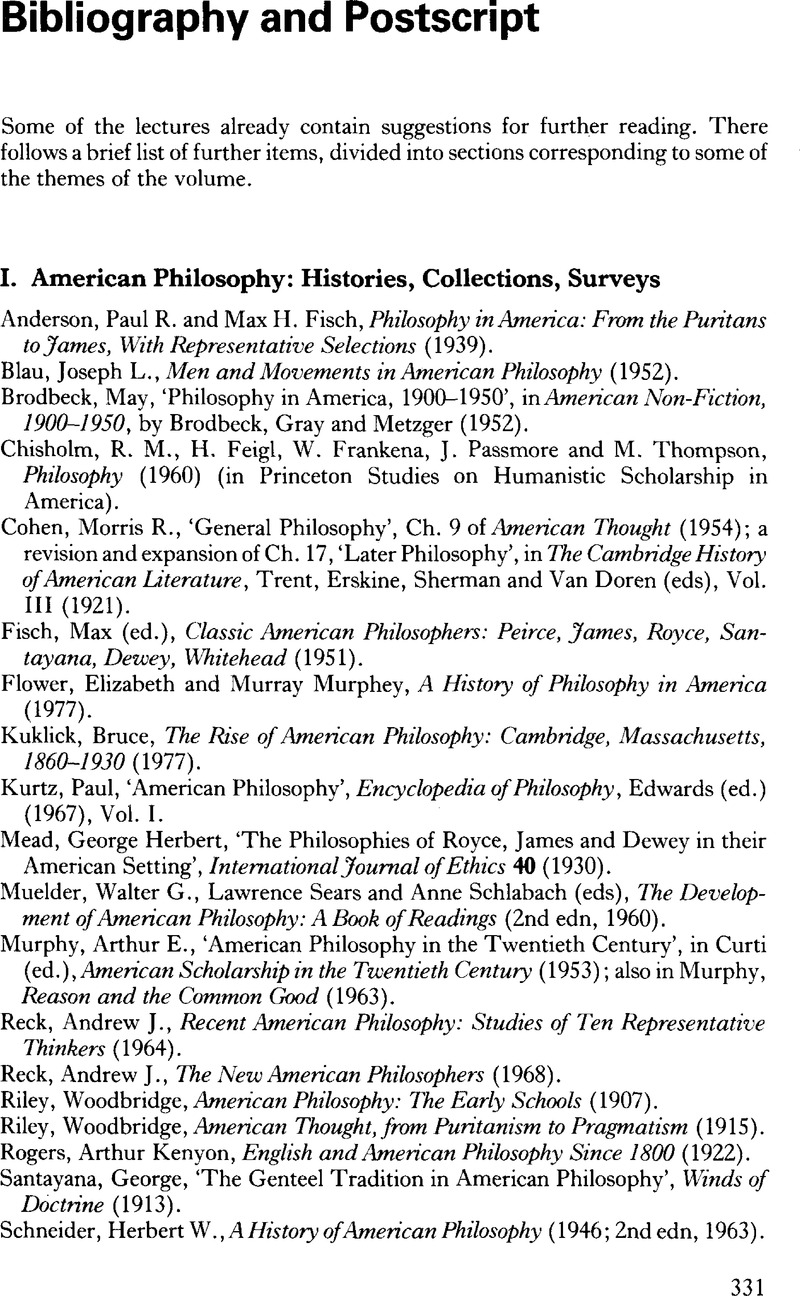Cohen, Morris R., ‘General Philosophy’, Ch. 9 of
American Thought (
1954); a revision and expansion of Ch. 17, ‘Later Philosophy’, in
The Cambridge History of American Literature, Trent, Erskine, Sherman and Van Doren (eds), Vol. III (1921).
Google Scholar 